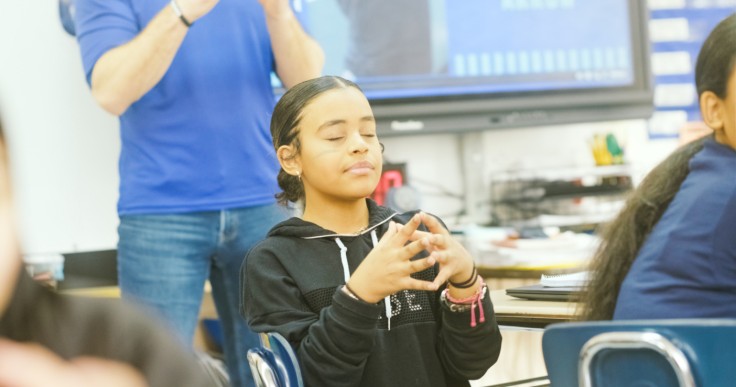Brain Power Wellness Reviews a Deeper Dive into Mindfulness and Meditation in Public Schools
Created by
Mindfulness and meditation have steadily gained recognition as invaluable tools for promoting mental and emotional well-being, especially within the realm of public education. By distinctions between the two practices, Brain Power Wellness reviews the following topics:
The Surging Popularity of Mindfulness
Mindfulness is on the rise, and this surge is not without reason:
• The Stress Epidemic: In our increasingly fast-paced world, stress has become a common companion. Mindfulness offers a lifeline, providing individuals, including students, with effective tools to manage stress.
• Elevated Awareness of Mental Health: Society is becoming more attuned to the importance of mental health. Mindfulness offers practical and accessible techniques to enhance emotional well-being.
• Empirical Validation: Scientific research consistently underscores the benefits of mindfulness, including improved attention, emotional regulation, and overall life satisfaction.
• Enhancing Learning Environments: Public schools are acknowledging that a serene and focused mind is more receptive to learning. As such, mindfulness is increasingly seen as an essential ingredient in improving educational outcomes.
Distinguishing Mindfulness from Meditation
Understanding the distinction between mindfulness and meditation is vital:
• Mindfulness is a state of awareness characterized by being fully present in the moment acknowledging our feelings, thoughts, and bodily sensations without judgment. It can be incorporated into daily life and doesn't necessitate a formal meditation practice.
• Meditation is a practice that involves concentrated attention on one's breath or an object, word, or sound. This practice often requires dedicated time and space.
Both mindfulness and meditation are essential components of the larger umbrella of contemplative practices, with mindfulness serving as the broader concept encompassing various forms of meditation.
The Stress-Reducing Powers of Meditation
Due to its multifaceted approach, meditation is a highly effective way to manage stress:
• Cortisol Regulation: Meditation reduces the release of cortisol, the primary stress hormone, leading to less stress in mind and body.
• Elicitation of the Relaxation Response: Meditation activates the body's relaxation response, leading to feelings of tranquility and calmness.
• Enhanced Emotional Resilience: Meditation equips practitioners with the tools needed to regulate emotions and respond to stressors with greater resilience and equanimity.
• Regular meditation builds resilience and fosters emotional well-being.
Movement as Meditation and Mindful Movement
The concept of "mindful movement" is an exciting addition to the world of contemplative practices. In essence, movement can be a form of meditation, combining physical activity with mindfulness principles. Here's why it matters:
• Embodied Presence: Mindful movement encourages individuals to be fully present in their bodies, deepening the connection between the mind and the physical self.
• Stress Reduction: Mindful movement, such as yoga or tai chi, promotes relaxation and heightened body awareness, leading to stress reduction.
• Enhanced Focus: Mindful movement improves concentration, mental clarity, and the ability to stay in the present moment.
• Mindful movement serves as a complementary practice to traditional seated meditation, offering diverse paths to mindfulness and well-being.
Brain Power Wellness's Effective Strategies for Mindfulness and Meditation
Brain Power Wellness employs a range of strategies to promote mindfulness and meditation effectively:
• Mindful Breathing (Smile & Breathe): BPW teaches individuals to utilize the breath as an anchor for mindfulness, fostering relaxation and sharpening focus.
• Guided Meditation (4-Part Breathing): BPW's guided meditations address specific themes, such as gratitude, stress relief, forgiveness, etc.
• Mindful Movement (1-minute exercise/stretching): Brain Power Wellness incorporates mindful movement practices (such as One-Minute Cardio exercise, Partner Side Stretch, yoga, and tai chi) into our programs to enhance body awareness, reduce stress, and promote physical well-being.
• Mindful Listening (Gratitude Walk): BPW encourages the development of active listening skills to foster empathy, effective communication, and a sense of community within the partner schools.
The Future of Mindfulness and Meditation in Public School Pedagogy
Brain Power Wellness envisions a future where schools have broadened their focus to prioritize the holistic well-being of students and teachers alike, where the significance of mental and emotional health in the educational arena is recognized. BPW envisions a future where mindfulness and meditation are integrated into the fabric of public school pedagogy, equipping students and teachers with emotional intelligence tools that enhance the education experience for all. At the same time, it is a future wherein these tools are also supporting parents and other caretakers with self-care and stress management.
In summary, mindfulness and meditation are poised to play pivotal roles in the future of public school pedagogy. These practices have transcended being mere trends and are now recognized as powerful tools for nurturing the well-being of students and educators alike, paving the way for a brighter and more balanced future in education.
About Brain Power Wellness
Brain Power Wellness is a holistic, school-based wellness organization that supports healthier, happier, more focused school environments. The mission of Brain Power Wellness is to help transform the culture of its partner schools through self-development, mindfulness, community building, retreats, SEL, holistic wellness, and brain training for teachers, students, parents, and administrators.
© 2026 University Herald, All rights reserved. Do not reproduce without permission.








